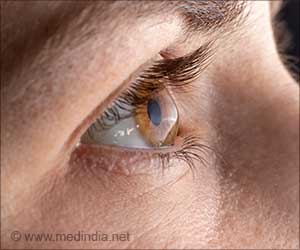On World Contraception Day, we emphasize the importance of awareness, access, and empowerment. Let's champion informed choices for reproductive health.
- World Contraception Day advocates for young individuals' rights to make informed decisions about their sexual and reproductive health
- Misinformation hinders contraceptive use; WCD aims to debunk myths and promote accurate information
- Beyond birth control, contraception plays a pivotal role in reducing maternal and infant mortality, empowering family planning, and fostering sustainable societies
World Contraception Day
Go to source). In today's age, where the discourse on womens health and rights has become more crucial than ever, understanding the significance of contraception is paramount.
Understanding Contraception: Not Just a Birth Control Tool
Contraception, commonly perceived as a means to prevent unplanned pregnancies, has a wider spectrum of benefits. Beyond birth control, contraceptives play a significant role in (2✔ ✔Trusted SourceContraception
Go to source):
- Reducing maternal and infant mortality rates
- Empowering women and couples to plan their families
- Reducing the number of unsafe abortions
- Managing health conditions and menstrual disorders
- Fostering sustainable societies through population management
The Current Contraceptive Landscape
While many methods, from barrier methods like condoms to hormonal methods like birth control pills, are available today, accessibility and awareness remain a concern. According to a report by the UN, roughly 12% of married or in-union women worldwide still have unmet contraceptive needs. Regions like Sub-Saharan Africa and parts of Asia see higher percentages of unmet needs, primarily due to cultural norms, lack of education, and inadequate health infrastructure.Why World Contraception Day Matters
Education and Awareness:
There's a wide array of contraceptive methods available, but lack of knowledge often leads individuals to either not use them or use them incorrectly. WCD promotes the spread of factual, unbiased, and comprehensive information.Autonomy and Empowerment:
Contraception is pivotal in allowing individuals, especially women, to have autonomy over their bodies. It empowers them to make decisions about when and whether to have children, significantly impacting their educational, economic, and social standing.Global Health and Sustainability:
Unplanned pregnancies can result in health risks for both the mother and child. By preventing these, contraceptives indirectly contribute to better maternal and infant health outcomes. Moreover, by managing population growth, contraception aids in sustainable development goals.Tackling Contraception Myths
Misinformation often hinders the use of contraception. Common myths include the notion that contraceptives are harmful, they cause infertility, or they aren’t necessary if one is breastfeeding. World Contraception Day aims to bust these myths by spreading accurate information.The theme for WCD often emphasizes the rights of young people to have access to contraception. Empowering the youth with knowledge, skills, and the means to understand and control their reproductive health is the way forward. Digital platforms, being the mainstay of today's youth, can be pivotal in spreading awareness. Interactive apps, online consultations, and webinars can make information accessible to all. Furthermore, engaging men in the conversation is vital. Contraception is often seen as solely a woman's responsibility. Changing this narrative ensures shared responsibility and can lead to more inclusive solutions.
World Contraception Day is not just a day; it's a movement. A movement towards a world where every pregnancy is wanted, every childbirth is safe, and every young individual's potential is fulfilled. With increased awareness, education, and access to resources, the global community can make this vision a reality.
References:
- World Contraception Day - (https://www.unfpa.org/events/world-contraception-day)
- Contraception - (https://pubmed.ncbi.nlm.nih.gov/30725634/)
Source-Medindia













